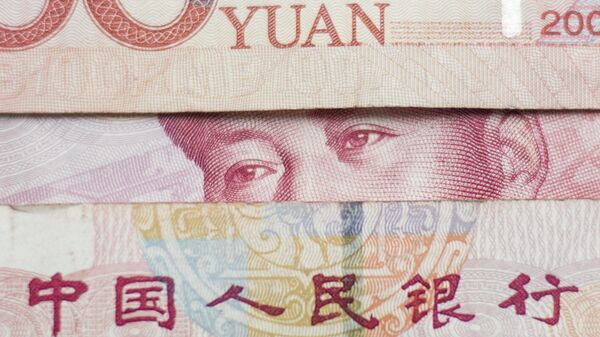Sputnik: What does China’s plan to sell 3 billion worth of US dollar bonds mean for the US economy?
Stuart Orr: This means that China is signalling its capacity to potentially increase US borrowing rates by selling off its US debt holdings (treasuries). China has worked hard to maintain the value of the yuan and it is generally accepted that its 1.3 trillion USD in US bonds are important stabilizers for its economy. Selling bonds could also strengthen the value of the yuan, which would support Trump's attempts to achieve a balance of trade between China and the US. Combined with tariffs, however, this would push up the cost of products imported from China to the US and increase the prices of products containing Chinese raw materials in the US.
READ MORE: EU Firms Considering Ending Use of Dollar in Transactions With Russia – Minister
The $3 billion worth of bonds and sale is trivial compared to the volume of trade between the two nations (around $600 billion) or the current trade imbalance (around $370 billion); however, it is a strong signal. It would annoy manufacturers, already struggling with the increased cost of raw materials. The increased tariffs have already forced US manufacturers to increase the diversity in their supply chains, in order to replace raw materials imported from China which are more expensive due to tariffs. US companies try to simplify their supply chains in order to keep costs down.
Sputnik: What kind of reaction do you anticipate to the news from US markets?
Stuart Orr: The US has long feared China taking action using its growing reserves of US bonds, so this news is likely to add fuel to the attitudes of those opposing the tariffs. US industry will be concerned about the possibility of increased borrowing rates. Chinese industry, by comparison, can expect to continue to have access to capital at attractive rates.
Sputnik: Who could be the likely buyers, in your view?
Stuart Orr: Most of the buyers are likely to be Asian institutional investors, except for Japan. Japan's relationship with the US would preclude it participating in the purchase of these particular bonds. Also, Japan has been recently selling off US bonds, because of fears that the US dollar might weaken. The $3 billion is a small release, however, so the big shoppers may not come out unless there is a second a much larger round.
Sputnik: It was reported that Asian companies outside of Japan have sold $185 billion in US dollar bonds so far in 2018. Why? Is this a normal process?
Sputnik: Do you think that there will be a lot of demand for China’s sovereign debt offering and that it will be successful?
Stuart Orr: It will be snapped up quite quickly as it is not a large volume and US bonds are still considered to be attractive and stable. In recent times, China's continual buy up of US bonds has reduced availability and pushed their price up slightly. This reversal will make the bonds more available and less expensive.
The views and opinions expressed in this article are solely those of the author and do not necessarily reflect those of Sputnik.




